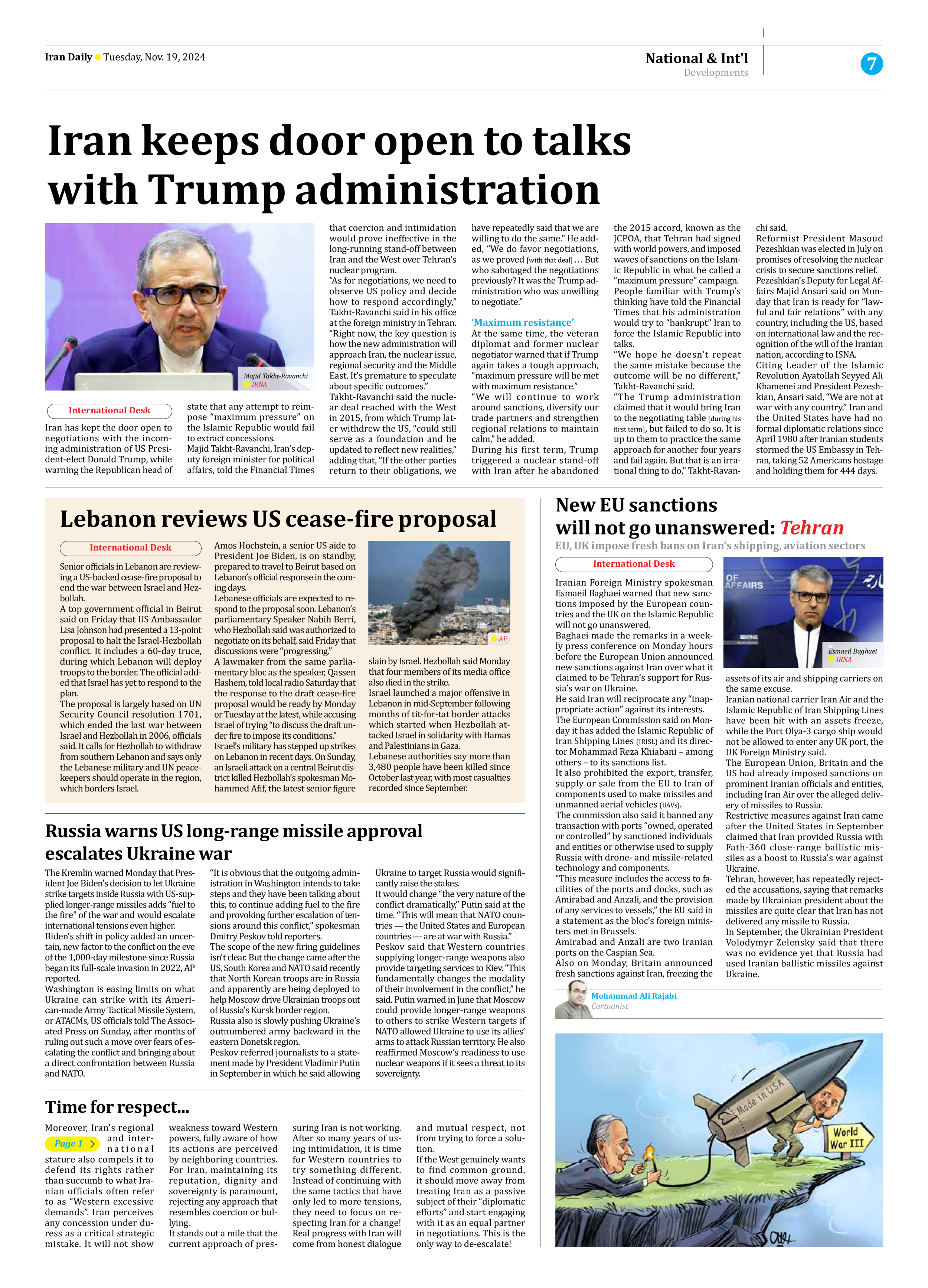
Iran keeps door open to talks with Trump administration
Iran has kept the door open to negotiations with the incoming administration of US President-elect Donald Trump, while warning the Republican head of state that any attempt to reimpose “maximum pressure” on the Islamic Republic would fail to extract concessions.
Majid Takht-Ravanchi, Iran’s deputy foreign minister for political affairs, told the Financial Times that coercion and intimidation would prove ineffective in the long-running stand-off between Iran and the West over Tehran’s nuclear program.
“As for negotiations, we need to observe US policy and decide how to respond accordingly,” Takht-Ravanchi said in his office at the foreign ministry in Tehran. “Right now, the key question is how the new administration will approach Iran, the nuclear issue, regional security and the Middle East. It’s premature to speculate about specific outcomes.”
Takht-Ravanchi said the nuclear deal reached with the West in 2015, from which Trump later withdrew the US, “could still serve as a foundation and be updated to reflect new realities,” adding that, “If the other parties return to their obligations, we have repeatedly said that we are willing to do the same.” He added, “We do favor negotiations, as we proved [with that deal] . . . But who sabotaged the negotiations previously? It was the Trump administration who was unwilling to negotiate.”
‘Maximum resistance’
At the same time, the veteran diplomat and former nuclear negotiator warned that if Trump again takes a tough approach, “maximum pressure will be met with maximum resistance.”
“We will continue to work around sanctions, diversify our trade partners and strengthen regional relations to maintain calm,” he added.
During his first term, Trump triggered a nuclear stand-off with Iran after he abandoned the 2015 accord, known as the JCPOA, that Tehran had signed with world powers, and imposed waves of sanctions on the Islamic Republic in what he called a “maximum pressure” campaign.
People familiar with Trump’s thinking have told the Financial Times that his administration would try to “bankrupt” Iran to force the Islamic Republic into talks.
“We hope he doesn’t repeat the same mistake because the outcome will be no different,” Takht-Ravanchi said.
“The Trump administration claimed that it would bring Iran to the negotiating table [during his first term], but failed to do so. It is up to them to practice the same approach for another four years and fail again. But that is an irrational thing to do,” Takht-Ravanchi said.
Reformist President Masoud Pezeshkian was elected in July on promises of resolving the nuclear crisis to secure sanctions relief.
Pezeshkian’s Deputy for Legal Affairs Majid Ansari said on Monday that Iran is ready for “lawful and fair relations” with any country, including the US, based on international law and the recognition of the will of the Iranian nation, according to ISNA.
Citing Leader of the Islamic Revolution Ayatollah Seyyed Ali Khamenei and President Pezeshkian, Ansari said, “We are not at war with any country.” Iran and the United States have had no formal diplomatic relations since April 1980 after Iranian students stormed the US Embassy in Tehran, taking 52 Americans hostage and holding them for 444 days.







